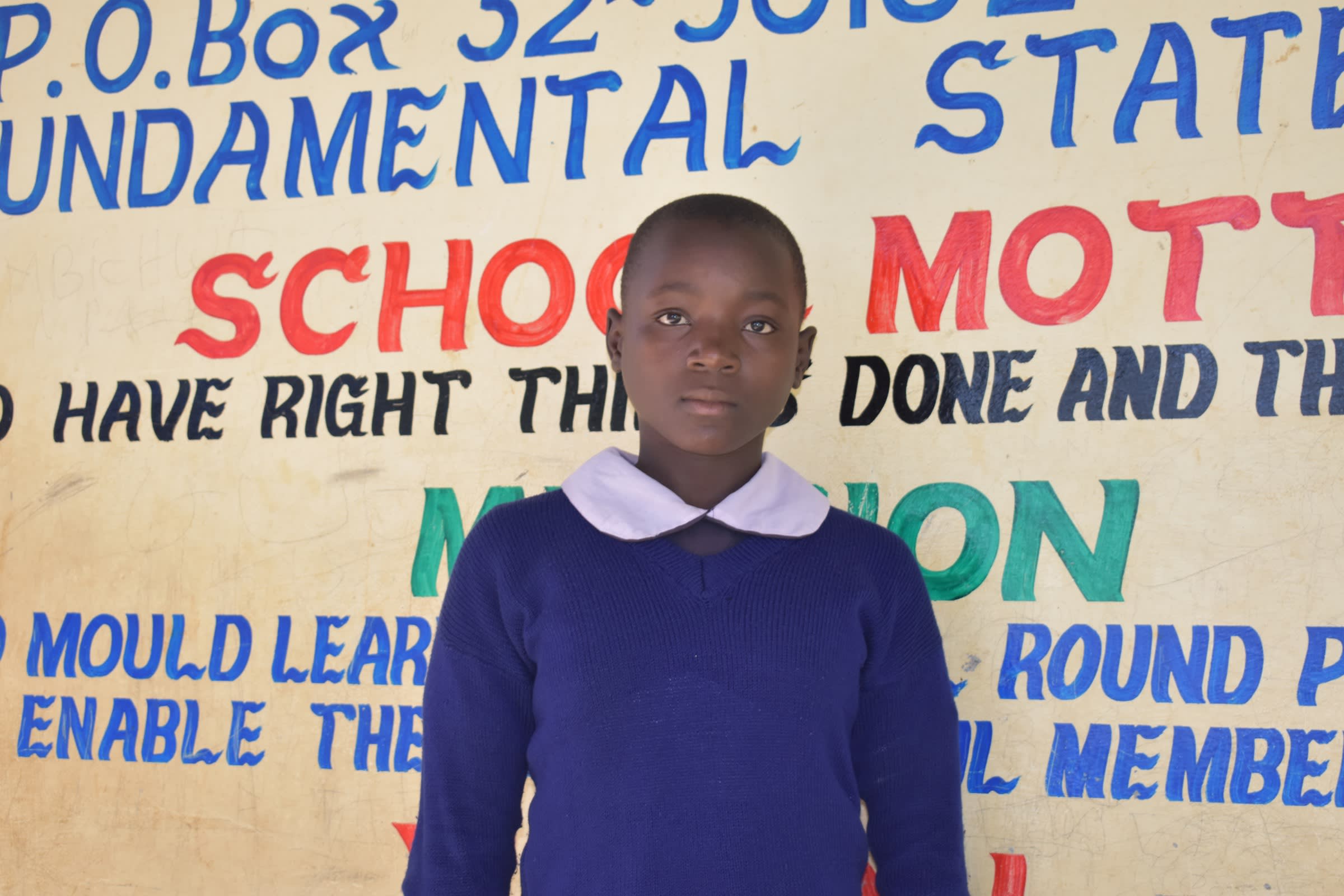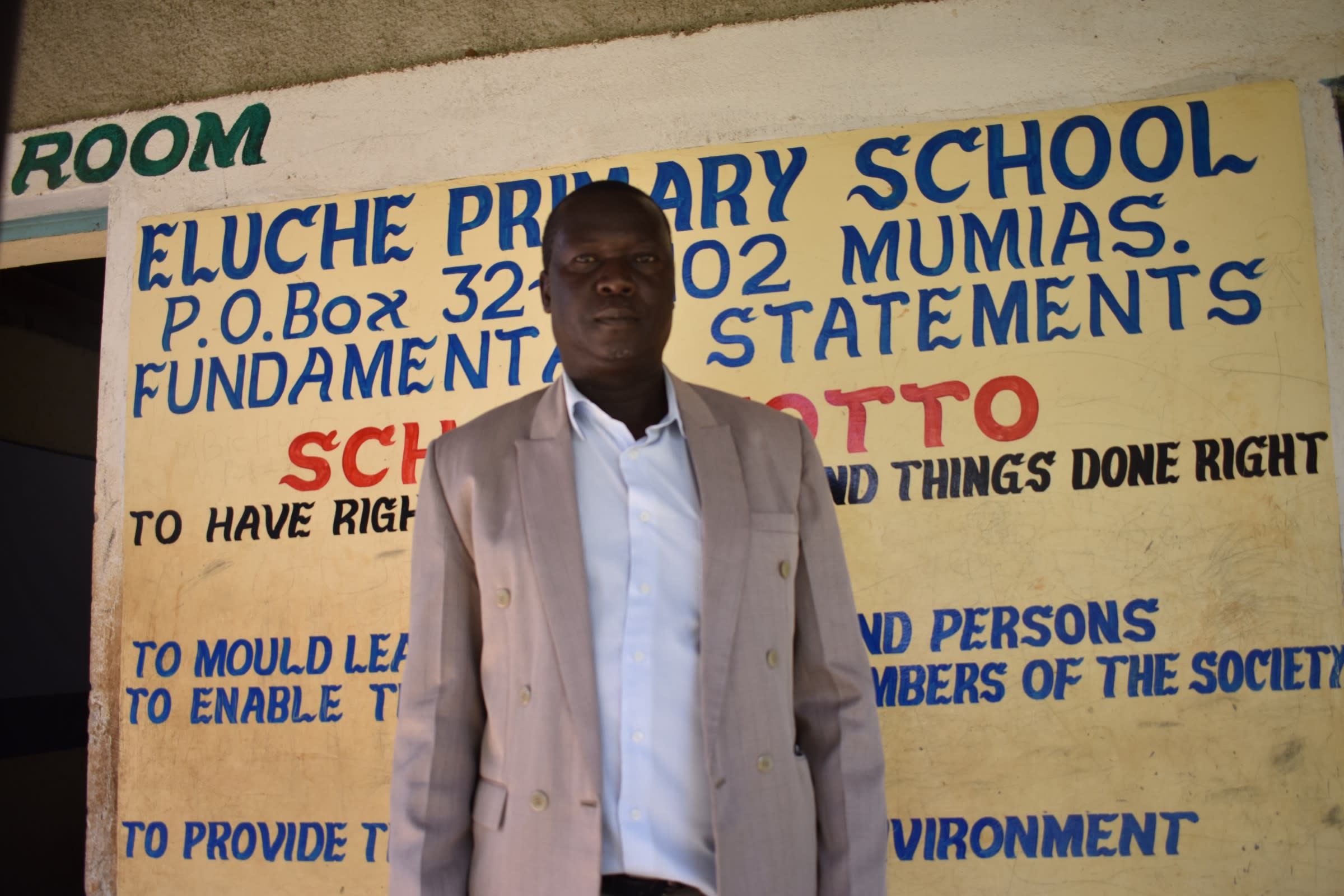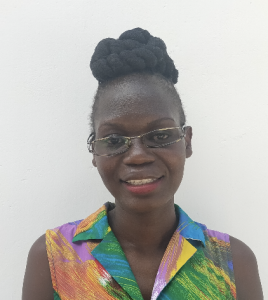The 702 students of Eluche Primary School have two options for water, and neither of them is a guarantee. If it's the wet season, they go to their well on school grounds—the one that's contaminated and infects the students and teachers alike with countless cases of cholera and typhoid every year.
If it's the dry season, their well doesn't have any water. So, water attempt #2 brings students next door to the secondary school. This well usually has water, but the pump is broken more often than not. So even after this trip, they may return to school with empty jerrycans.
14-year-old student Valary (pictured below) explained: "When [the well] dries up, we are forced to fetch from [the] secondary school, which also breaks down most of the time. For sure, it has been a challenge."

But the student's water problems don't come only during the dry season. In the wet season, even when the well has water, students are forced to wait in line for their chance to get water.
"The dug well is shared with the community, which creates hostility with the pupils," Valary said, "because community members believe they should fetch water first before we do."
The school's Head Teacher, George Matete, elaborated on the problem. "Though water is life, its inadequacy can impact negatively on academic performance and interference of school routine due to time-wasting, as learners queue at the dug well waiting for their turn to draw water."

The students in this community are plagued by scarcity both at school and at home. Students wear too-small uniforms, no shoes, and dust-browned masks. Because they are constantly plagued by water-related illnesses, their health is poor. And because water at Eluche is scarce, the classrooms and latrines are rarely cleaned.
In the past, the students' parents would have earned income and provided food for their families by farming. However, most of the community's land was recently sold to a nearby nuclear power plant, which left many without land in which to plant vegetables or keep livestock.
With a borehole well at school, these children will have a reliable source of nourishment and cleanliness. Their health will improve, and so too will their visions for their futures.
What We Can Do:
New Well
We conducted a hydrogeological survey at this school, and the results indicated the water table beneath it is an ideal candidate for a borehole well. Due to a borehole well's unique ability to tap into a safe, year-round water column, it will be poised to serve all of the water needs for this school's large population, even through the dry season.
The school will help collect the needed construction materials such as sand, rocks, and water for mixing cement. They will also provide housing and meals for the work team, in addition to providing local laborers. We will complement their materials by providing an expert team of artisans and drilling professionals, tools, hardware, and hand-pump. Once finished, the school’s students and staff will use water from the well and staff for drinking, handwashing, cooking, cleaning, and much more.
The school and we strongly believe that all of these components will work together to improve standards at this school, which will help lead to better student academic performance and unlock the opportunity for these students to live better, healthier lives.
Handwashing Stations
The student health club will oversee two new handwashing stations we will provide and ensure they are kept clean and in working condition. The club leaders will fill the handwashing stations with water daily and make sure they are always supplied with a cleaning agent such as soap or ash.
VIP Latrines
Two triple-door latrine blocks will be constructed with local materials that the school will help gather. Three doors will serve the girls, and three doors will serve the boys. These new latrines will have cement floors designed to be easy to use and clean. And with a rain tank right on school property, there should be enough water to keep them clean.
Training on Health, Hygiene, COVID-19, and More
We will hold a one-day intensive training session with students, teachers, and parents. This training will cover a wide range of topics, including COVID-19 symptoms, transmission routes and prevention; personal and environmental hygiene; and the operation and maintenance of the rain tank, latrines, and handwashing stations. There will be a special emphasis on handwashing.
Our team of facilitators will use various methods to train, including participatory hygiene and sanitation transformation and asset-based community development. We will initiate a student health club, which will prepare students to lead other pupils into healthy habits at school and home. We will also lead lectures, group discussions and provide illustrative handouts to teach health topics and promote good hygiene practices within the school, including handwashing and water treatment. We will then conduct a series of follow-up training before transitioning to our regularly scheduled support visits throughout the year.

 Borehole Well and Hand Pump
Borehole Well and Hand Pump
 Rehabilitation Project
Rehabilitation Project






































